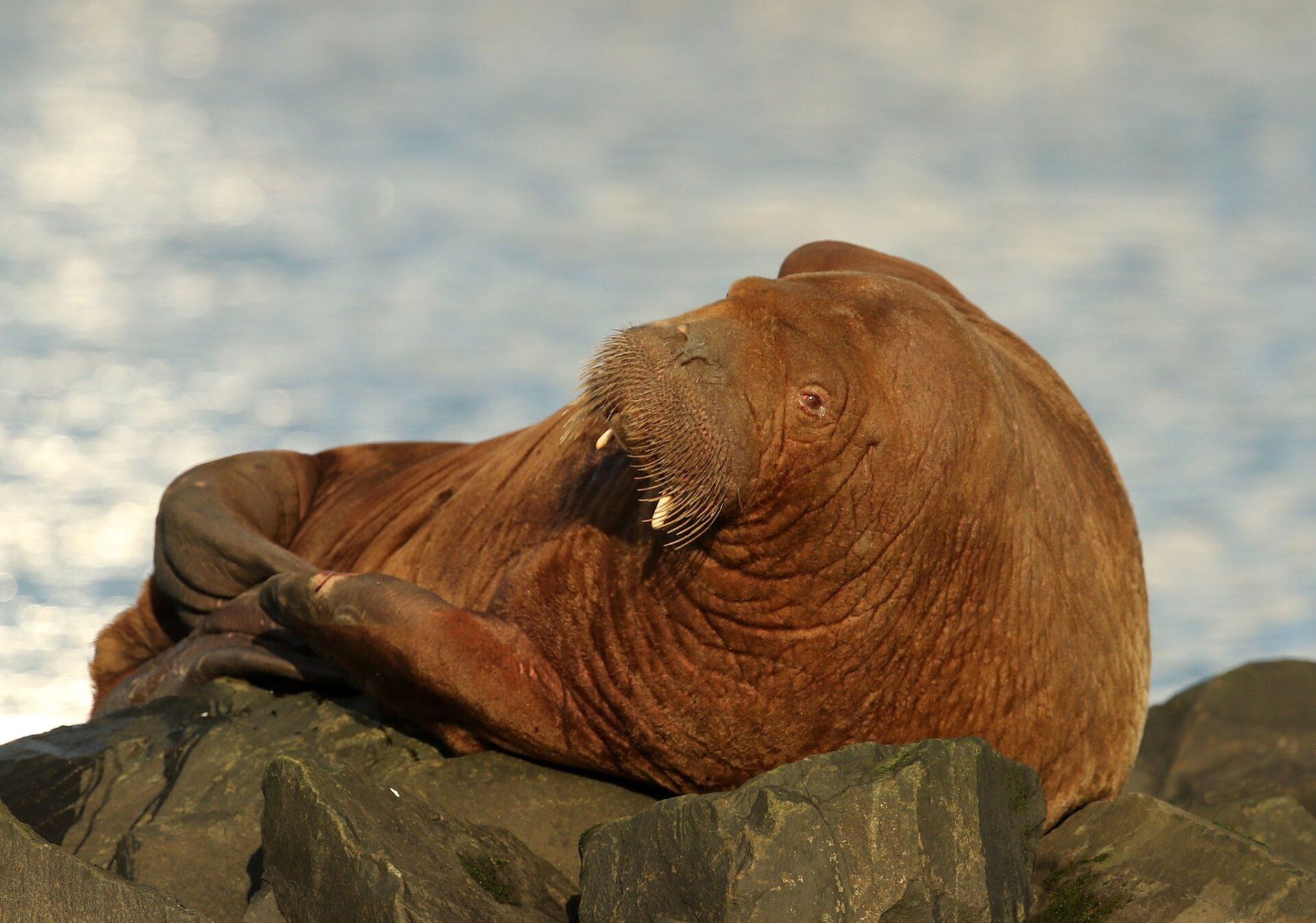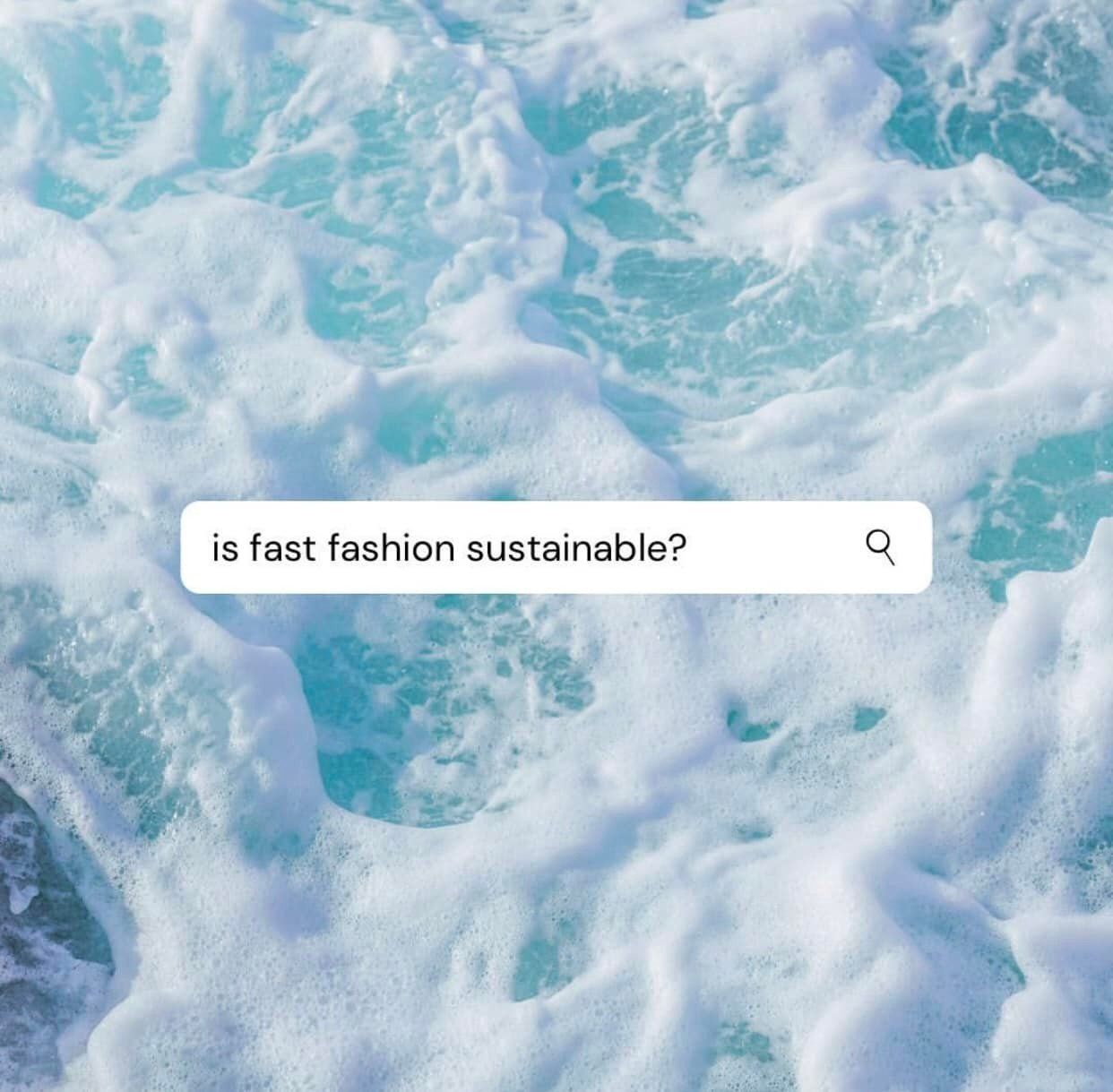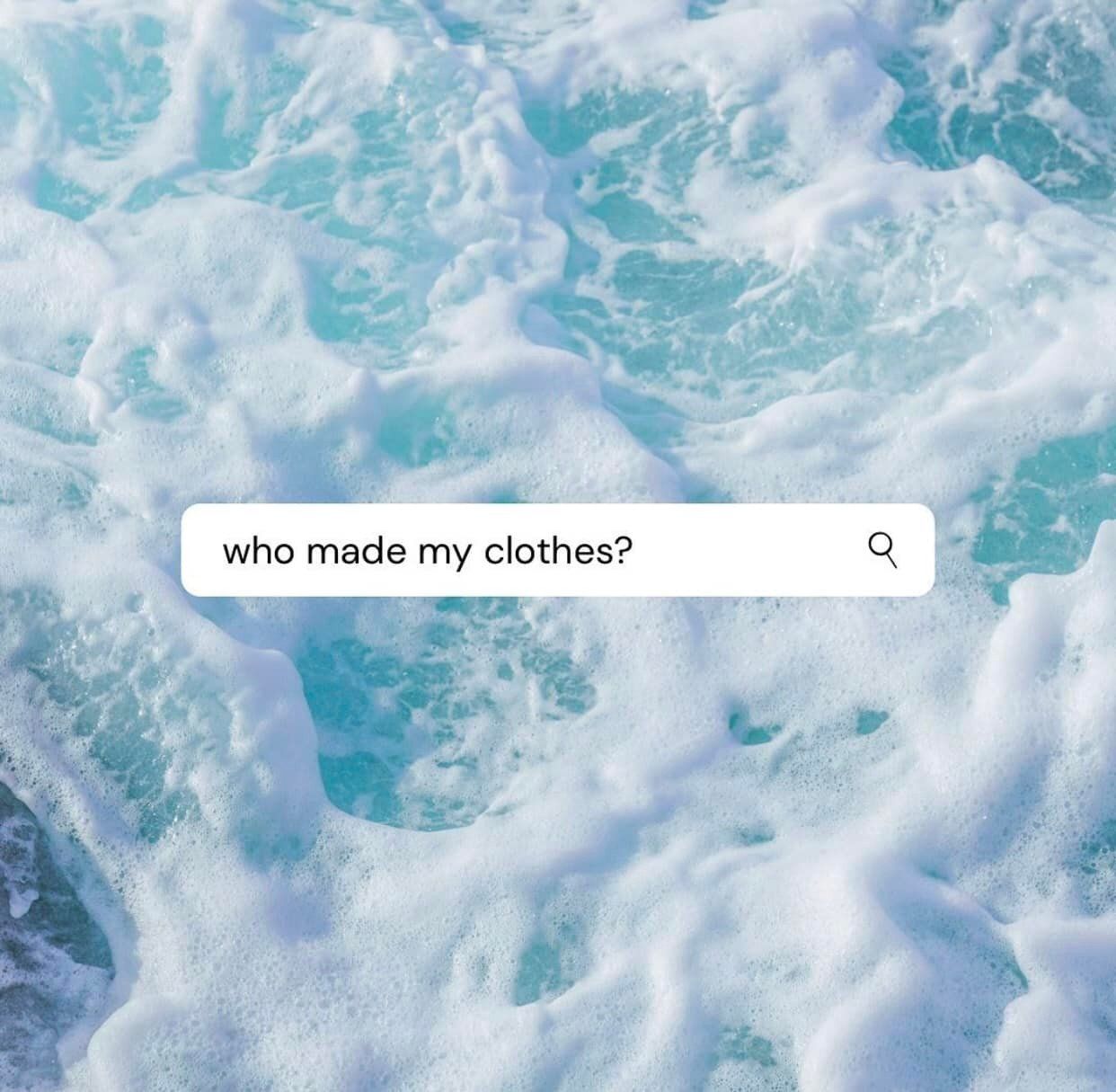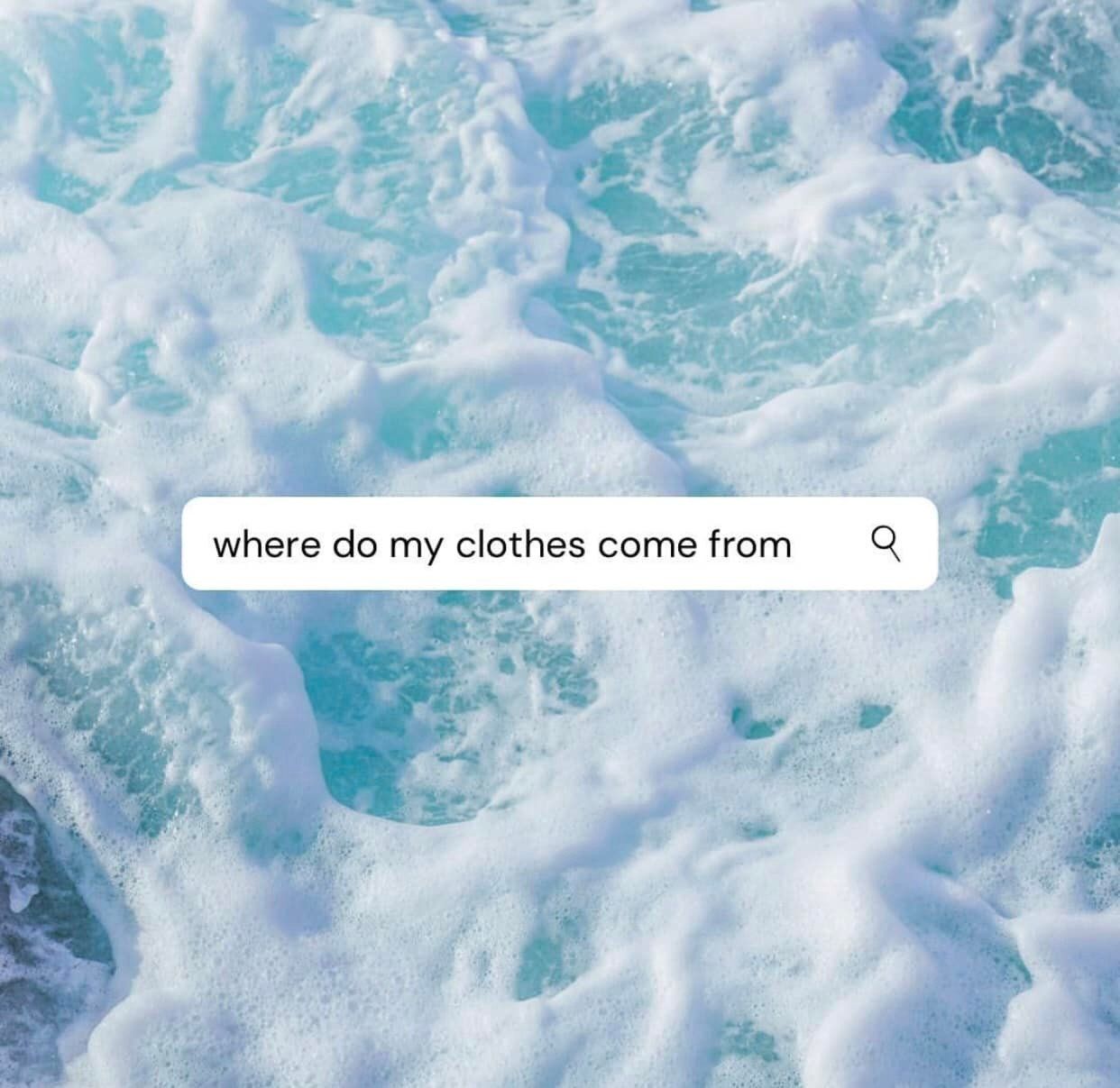How To Create a Sustainable Wardrobe!
ORCA SciComm Team • 9 December 2021
How to Create a Sustainable Wardrobe!
ORCA SciComm Team - 9th December '21
The idea of creating a sustainable or ethical wardrobe from scratch is, without a doubt a challenging task. You may not be able to wear the brands you are used to, limiting your choices in terms of trends, not to mention having to spend a little more than you would normally. All of these are valid concerns, but creating a sustainable wardrobe isn't as hard as you may think. Read on to find out tips and tricks to help you transition from a "fast fashion" foe to a "slow fashion" soul sista!

Here are 10 Tips for a Sustainable Wardrobe:
- The 30 Wears Test: Will you wear the clothing item a minimum of 30 times? Try to avoid purchasing items to wear for just one occasion and instead invest in clothing with more longevity that you can wear again and again!
- Get Informed: Research brands and look for evidence as to why they are sustainable. Do they lessen the impact of production practices by continually reviewing their processes and making the necessary changes to become carbon neutral? What materials are they using? Are they reducing their use of plastic?, or are they contributing to the problem of debris and litter in our oceans through micro-plastics and micro-fibres that contain harmful toxins? What is their supply chain like and where do they source their materials? Are their operations ethical and are their staff treated well?
- Change Your Attitude: Change your attitude towards shopping by realising that every item that you purchase has had a substantial carbon footprint attached to its manufacturing, but the amount of new energy needed to produce vintage clothing is zero. The global footprint of fast fashion includes the 132 m metric tonnes of coal used annually through the production of new fibres, dyeing and bleaching of garments and the 6-9 trillion litres of water used by the industry.
- Circular Fashion: ORCA Ireland encourages our members to avail of our online social media groups that enable us to use circular fashion through rental schemes for kids clothes. Given that 300,000 tonnes of unwanted clothes are binned, not recycled every year, there is an opportunity in sharing our wardrobes and contributing to the circular economy as a step towards a more sustainable future.
- Buy Trans-seasonal clothes: Only buy items that you know are going to work for you all year round. That's why ORCA's garments include T-shirts and Hoodies, so you can be cozy and comfortable no matter what the season. Always use a reusable facemask.
- Donate unwanted clothes: Giving your unwanted clothes to good-will for a good cause will not only be good for the people that need them, but will help them be more sustainable by using your unwanted garments, rather than buying something new. A great way to do this is to have a one in - one out policy - live by the mantra that when you buy something new, you will donate something.
- Look after your clothes: Look after your clothes so they last longer. Buy high quality items as they will last longer and you are more likely to treat them carefully because they were more expensive. Invest in a handheld or standing steamer for your clothes - an efficient and gentle alternative to an iron. It leaves your clothes smooth, fresh and wrinkle free. The hot steam also reduces bad smells, kills bacteria and removes all signs of the garment being worn.
- Repair clothing: Learn how to sew or find a good tailor to repair clothing when something rips or a heel breaks, you don't necessarily have to throw it away.
- Quality or quantity: It's all about planning ad buying better quality items that are more sustainable. They may be more expensive than buying cheap high-street labels.
- Change how you spend money and your perspective: Don't splurge on a. new dress you are only going to get one wear out of. Consider committing to buying only one item per month. After a few seasons, you will have a high quality, sustainable wardrobe you are proud of. Dressing sustainably doesn't mean you have to compromise on getting the latest trends. ORCA Ireland's sustainable ethos is at the heart of practicality, comfort and fashion.

SHARE THIS ARTICLE

Bird Flu is a serious threat to Irish Gannet Colonies. ORCA SCI-COMM TEAM | 04 September 2022 ORCA Ireland are deeply concerned about the severe epidemic of bird flu of the H5N1 strain, which is highly pathogenic in cases of pelagic seabirds and has now hit seabirds in Irish waters. According to top scientists at the University College Cork (UCC), avian influenza has now reached Irish Gannet colonies. Recent reports from Irish scientists and members of the public have indicated a huge increase in the numbers of dead northern gannets off the Irish coasts. These increases in seabird deaths may be linked to the Highly Pathogenic Avian Influenza (H5N1).

PCB Pollution Threatens Global Killer whale ( Orcinus orca ) Populations. ORCA SciComm Team | 14th July 2022 Global killer whale population are predicted to collapse due to pollution with polychlorinated biphenyls (PCBs). A scientific report which used individual-based models combined with globally available data on PCB concentrations found that PCB-mediated effects on reproduction and immune function threaten the longterm viability of >50% of the world’s killer whale populations.

Russian Navy Trained Dolphins Deployed in Crimea ORCA SciComm Team | 29th April 2022 Russian Navy Trained Dolphins may have been deployed in Crimea, with two sea pens having been spotted at one of their bases in satellite imagery since the start of the Ukraine invasion in February, according to the US Naval Institute.

Iceland to end whaling in 2024 with drop in demand for whale meat. ORCA SciComm Team | 4th February 2022 Iceland have announced an end to commercial whale hunts in 2024, after a government minister commented there was "little justification for the practice". Whaling in Iceland is no longer profitable, due to a decrease in the consumption of whale meat and since Japan re-commenced whaling operations after a three decade hiatus in 2019.

Shell Oil & Gas Seismic Surveys Threaten Whales off South Africa ORCA SCI-COMM TEAM | 11th of December 2021 Across the globe there is public outrage due to the planned seismic surveys to search for oil and gas deposits off South Africa's Wild Coast by energy company Shell. Environmental NGO's, Human Rights Organisations and local fishing communities are trying to stop the seismic surveys through litigation, due to the harmful impact seismic surveys can have on marine wildlife. South Africa is home to 37 species of whales and dolphins, but these anthropogenic activities threaten the survival of wild whales off Africa's south coast. Let's dive deeper to investigate what seismic surveys are and how they can harm whales!

WALRUS WATCH: A SECOND WALRUS SEEN IN THE U.K.? ORCA SciComm Team | 20th November 2021. This week a large walrus was spotted off the east coast of the U.K., but it's not Wally this time! A month after Wally returned to the Arctic, last to be seen in Iceland, a new Walrus has followed in his foreflippers. The Walrus was spotted on the Northumberland coastline, at Seahouses Harbour, about an hour from Newcastle on the 14th of November.










